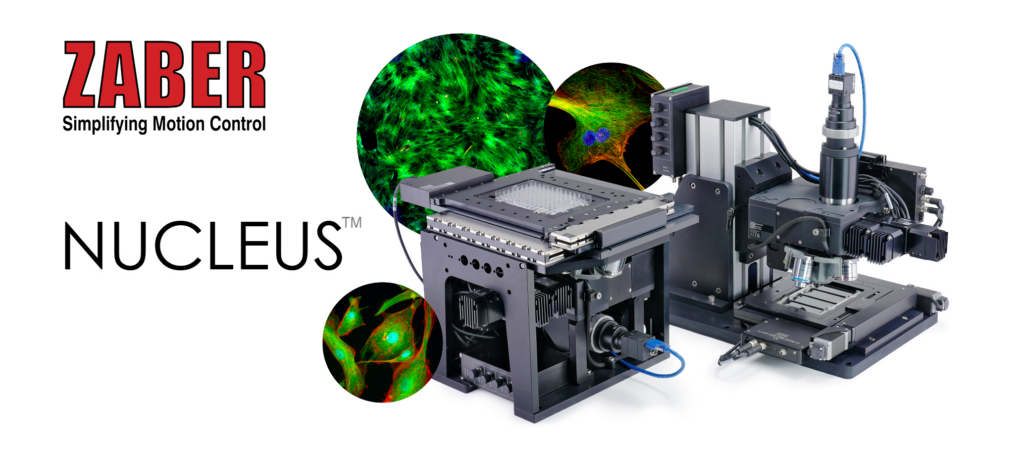Introduction
Microscopes are essential instruments in the field of life sciences, enabling researchers to explore the intricate world of cells, tissues, and microorganisms. Traditional microscopes from the “big four” manufacturers have long been the preferred choice for many labs. However, a new concept is challenging this status quo, revolutionising microscopy – modular microscope platforms. In this article, we will delve into the utility of modular microscope platforms and compare them to the conventional microscopes from the “big four” manufacturers.
The Big Four Manufacturers
Nobody ever got fired for buying an IBM! – Generic Sales Statement, Generic Sales Person
Before we dive into the advantages of modular microscope platforms, let’s briefly introduce the “big four” microscope manufacturers: Nikon, Zeiss, Olympus, and Leica. These companies have been pioneers in the field of microscopy, producing high-quality, reliable, and innovative instruments for decades. Their microscopes have become industry standards, offering exceptional optics and ergonomics.

The Limitations of Traditional Microscopes
Traditional microscopes have served the scientific community exceptionally well, but they come with certain limitations:
- Limited flexibility: Traditional microscopes are designed for specific applications. If you need to change your research focus or add new imaging techniques, you might need a completely different microscope.
- Costly upgrades: Upgrading a traditional microscope can be expensive and time-consuming. Adding new features or capabilities often involves purchasing additional components or even replacing the entire microscope.
- Limited space: Traditional microscopes can be bulky and occupy a significant amount of lab space, which can be a concern for smaller research facilities.
The Advantages of Modular Microscope Platforms
Modular microscope platforms offer an innovative solution to these limitations:
- Versatility: Modular platforms are designed to adapt to various research needs. With a modular approach, you can easily reconfigure: Switching between imaging techniques, such as brightfield, fluorescence, confocal, or super-resolution, by simply swapping out components. This versatility saves both time and money.
- Cost-effective upgrades: Instead of replacing an entire microscope, modular platforms allow you to upgrade specific components, like cameras, objectives, or illumination sources, XY stages, filters, focus stages; without breaking the bank. This flexibility keeps your lab up-to-date with the latest technology.
- Space-efficient: Modular microscopes are typically more compact than their traditional counterparts. This space efficiency can be a game-changer for labs with limited room to spare. In some institutes in the UK, space is at a premium, if the group can fit more equipment in the same space, they can produce research of both higher quantity and quality.
- Customization: Researchers can tailor their modular microscope platform to their specific research needs, and these needs can evolve other time. You can build a microscope that suits your unique requirements, rather than settling for a one-size-fits-all solution; with flexibility for whatever may be required in the future.

Comparison with Traditional Microscopes
Now, let’s compare modular microscope platforms to traditional inverted microscopes:
- Flexibility: Modular platforms have an obvious advantage in terms of flexibility. You can switch between techniques and customize your setup according to your research needs, while traditional microscopes remain static at the core of their capabilities.
- Cost-efficiency: Modular platforms offer a cost-effective solution for labs with limited budgets. You can choose the components that matter most to your research, avoiding unnecessary expenses. You get what you need, and nothing you don’t.
- Space-saving: For labs where space is at a premium, modular microscopes provide a compact alternative to the bulkier traditional inverted microscopes. More room around a microscope allows more room for the actual experiments, not just the imaging.
- Future-proofing: The modular approach ensures your microscope stays relevant in the face of advancing technology, while traditional microscopes may require frequent replacements to stay up-to-date.
Conclusion
Modular microscope platforms are emerging as a valuable alternative to traditional microscopes from the “big four” manufacturers. Their versatility, cost-effectiveness, space efficiency, and customizability make them a compelling choice for life science researchers. While traditional inverted microscopes have been reliable workhorses in the past, the modular approach brings the promise of adaptability and future-proofing to the forefront of microscopy technology. As the field of life sciences continues to evolve, modular microscope platforms are poised to play a pivotal role in advancing our understanding of the microscopic world.
Laser 2000 UK works with a variety of microscopy solutions; in particular, the Nucleus range from Zaber Technologies is a great modular microscopy platform, with both an inverted and upright solution, and a range of options and flexibility to meet any need. This could be combined with various other microscopy systems to create amazing capabilities.






























